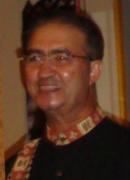I vividly recall watching Nelson Mandela being released from the Victor Verster Prison near Cape Town after being transferred from Robben Island, where he was incarcerated for 27 years. That day, in 1990, the nation and the world were glued to television sets with joyful but uncertain anticipation. The South African economy was reeling with the effect of global economic sanctions leading up to this historical event. Many towns in South Africa were still experiencing violence with police brutality with hundreds of people being shot and arrested during this euphoria.
He greeted the crowds with the words, “To all people, black and white, I greet you in the name of peace, democracy and freedom for all.” His speech was finely balanced between the demands of his largely black constituency and magnanimity towards whites and repeated hope for peace.
A few months later I travelled to a city called Durban, in the northeast of South Africa, where Nelson Mandela addressed a crowd of over 200,000 people. The areas in this province of Kwa-Zulu Natal were perceived as the “killing fields” of South Africa. Mandela screamed at the crowd to “Stop the violence, find a job, and, young people, go back to school, and get your education!”
In 1993, I was elected by the clergy coalition in the town of Bonteheuwel, where I ministered, to represent the churches to meet with Mandela when he came to visit. Bonteheuwel was the center of police brutality for the past two decades, and he came to share solidarity with the residents. The experience was overwhelming, for amidst the thronging crowds, I was announced and went to greet him with a handshake. He responded with a hug. I was in tears.
The second time I met him was at the retirement celebration of Archbishop Desmond Tutu. In his keynote address, Tutu remarked that when he was a child, Nelson Mandela was his hero. Mandela responded with the words, “Well, if you were a child, why is it that I still have to work as your president, and you are able to retire?” There was a roar of laughter from the crowd.
The third time I met him was my most personal and memorable experience. In 1997 he decided to visit my parish in a town called Elsies River, near Cape Town. It was a town that had a history of gangsterism and police brutality. When he got out of his car to greet me, I felt a rush of emotion, and this time he gave me an extra-long hug. His spirituality and aura were an indescribable presence. Mandela briefly interviewed me amidst the presence of a few reporters about the church and history of the town. I asked him why he chose my parish and town, to which he replied, “I am a politician, so naturally I’m coming to look for votes.”
In essence, Nelson Mandela was saying that democracy meant more than a vote. It must be measured by the quality of life of ordinary men and women, young and old, rural and urban. The children of South Africa should never again know the violence of suffering, the shame and pain, many of their parents endured. This was the true expression of Ubuntu: A person is a person through other persons and our humanity is bound up with one another.
I voted for the first time in 1994, in the first election open to all South Africans, regardless of color. It was my honor and privilege to cast my vote for Nelson Mandela.
May the legacy of Nelson Mandela live forever. He was, undoubtedly, the first among equals.
--The Rev. Noble F. Scheepers, Rector, Church of the Good Shepherd, Dedham
Opinions expressed in Reflections are those of the writers. Reflections are original essays intended to provide insight and perspective on faith and daily life; some first appeared elsewhere and are republished here with permission. Submissions are welcome; all material is subject to editing. This section is not intended to advertise specific events or fundraisers. Event postings may be submitted here. Submit Reflections for consideration to news@diomass.org.

